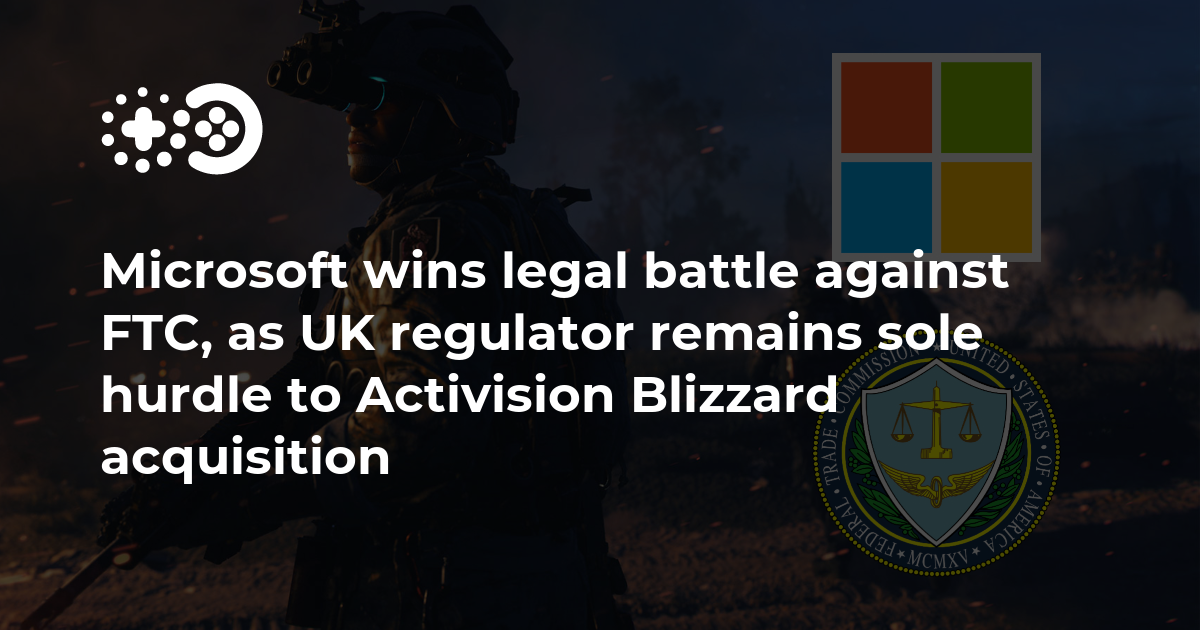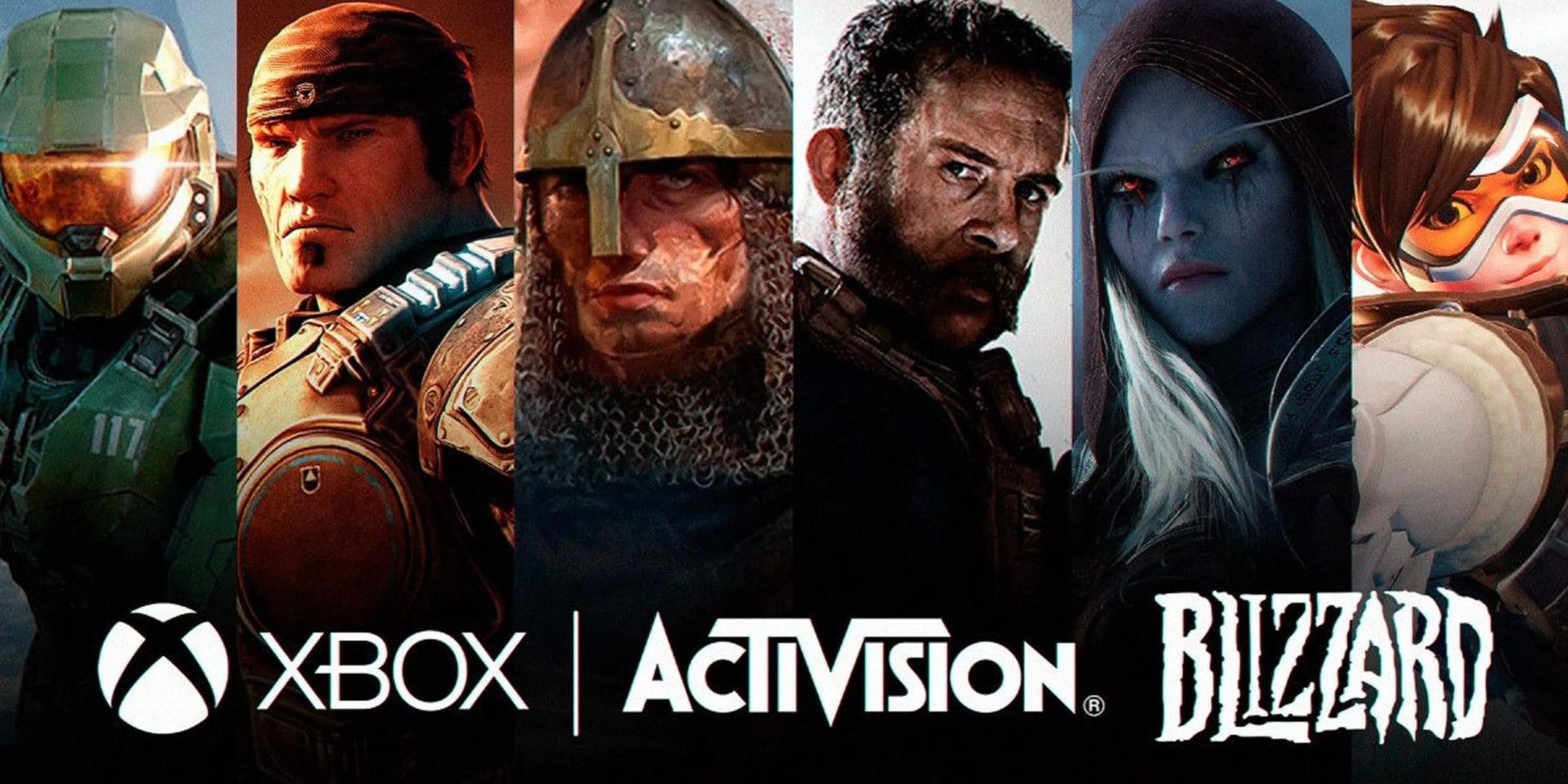FTC Challenges Court Ruling On Microsoft's Activision Blizzard Acquisition

Table of Contents
The Initial Court Ruling and its Rationale
A US District Court initially dismissed the FTC's attempt to block Microsoft's $69 billion acquisition of Activision Blizzard. The judge's decision, delivered in July 2023, hinged on the argument that the FTC failed to convincingly demonstrate that the merger would substantially lessen competition in the video game market.
- Summary of the judge's key findings: The judge found the FTC's claims of anti-competitive behavior unconvincing, particularly regarding the potential for Microsoft to make Call of Duty exclusive to its Xbox ecosystem. The judge emphasized the availability of Call of Duty on other platforms and the competitive landscape within the gaming industry.
- Arguments the judge found unconvincing: The court found the FTC's market definition too narrow and its projections of market dominance overly pessimistic. The judge questioned the FTC's methodology and the weight of its evidence.
- Legal precedent: While not setting a groundbreaking legal precedent, the ruling highlights the high bar the FTC faces in blocking large mergers based on potential anti-competitive effects. It underscores the need for robust evidence and a clearly defined market to successfully challenge such acquisitions.
The FTC's Arguments for Challenging the Ruling
The FTC immediately appealed the court's decision, arguing that the judge erred in its assessment of the potential anti-competitive effects of the merger. The FTC maintains that Microsoft's acquisition of Activision Blizzard will significantly harm competition, particularly concerning the dominance of Call of Duty and other major Activision Blizzard franchises.
- Specific claims regarding market dominance: The FTC contends that Microsoft, already a major player in the gaming console market, will leverage the acquisition to stifle competition from Sony and other rivals by making key Activision Blizzard titles exclusive to its Xbox ecosystem or by degrading the quality of games released on competing platforms.
- Potential impact on game prices and consumer choice: The FTC argues that the merger will limit consumer choice and potentially lead to higher prices for games. The loss of competition, it claims, will result in less innovation and a decline in the overall quality of gaming experiences.
- FTC's definition of the relevant market: The FTC defines the relevant market broadly, encompassing not just consoles but also subscription services and cloud gaming, arguing that Microsoft's control over multiple segments would be anti-competitive.
The Role of Call of Duty and Other Key Franchises
The FTC’s arguments heavily center on the significance of Activision Blizzard's key franchises: Call of Duty, World of Warcraft, and Candy Crush. These titles represent considerable market share and revenue streams.
- Market share analysis: Call of Duty consistently ranks among the highest-grossing video game franchises globally. The FTC argues that Microsoft controlling Call of Duty gives it undue leverage over competitors.
- Potential scenarios for exclusive access: The FTC fears Microsoft could make future iterations of Call of Duty exclusive to Xbox or its Game Pass subscription service, harming competitors like Sony's PlayStation.
- Impact on subscription services and game pricing: The FTC’s concern is that the acquisition could enable Microsoft to raise subscription prices for Game Pass or restrict access to games on rival platforms.
Potential Outcomes and Next Steps
The FTC's appeal introduces several possible scenarios:
- Timeline for potential appeals and court hearings: The appeal process could take months or even years, involving further legal arguments and court hearings.
- Possible settlements or compromises: Microsoft and the FTC might negotiate a settlement that involves concessions from Microsoft, such as commitments to maintain Call of Duty availability on competing platforms.
- Impact on Microsoft's future acquisition strategies: The outcome will influence future merger reviews and potentially discourage other large tech acquisitions. A successful FTC challenge could set a precedent for more stringent scrutiny of similar deals in the future.
Broader Implications for the Gaming Industry
This legal battle holds significant implications:
- Impact on smaller game developers and publishers: The outcome could impact how regulators view mergers and acquisitions in the broader gaming industry, potentially affecting smaller studios looking to merge or be acquired.
- Potential changes in industry consolidation: The case could curb industry consolidation, leading to a more fragmented market and potentially increased competition.
- Future regulatory scrutiny of large tech acquisitions: The case could lead to stricter regulatory oversight of large tech companies seeking acquisitions in the gaming and other industries.
Conclusion
The FTC's challenge to the Microsoft Activision Blizzard acquisition represents a significant turning point in the gaming industry's regulatory landscape. The outcome will have profound implications for competition, pricing, and the availability of popular game titles. The legal battle highlights the growing scrutiny of large tech mergers and their potential impact on consumer choice. The FTC challenges Microsoft Activision Blizzard acquisition is a complex case with potentially far-reaching effects on the future of gaming.
Call to Action: Stay informed on the evolving situation regarding the FTC challenges Microsoft Activision Blizzard acquisition. Keep checking back for updates and analysis as this crucial legal battle unfolds. Understanding the nuances of this case is vital for anyone invested in the future of the gaming industry.

Featured Posts
-
 Ftc Appeals Activision Blizzard Acquisition Ruling Whats Next
Apr 23, 2025
Ftc Appeals Activision Blizzard Acquisition Ruling Whats Next
Apr 23, 2025 -
 Nestor Cortes Returns To Form With Shutout Against Reds
Apr 23, 2025
Nestor Cortes Returns To Form With Shutout Against Reds
Apr 23, 2025 -
 Erzurum Okullar Tatil Mi 24 Subat Pazartesi Son Dakika Okul Durumu
Apr 23, 2025
Erzurum Okullar Tatil Mi 24 Subat Pazartesi Son Dakika Okul Durumu
Apr 23, 2025 -
 Ai Powered Podcast Creation Turning Repetitive Scatological Texts Into Engaging Audio
Apr 23, 2025
Ai Powered Podcast Creation Turning Repetitive Scatological Texts Into Engaging Audio
Apr 23, 2025 -
 Mets And Yankees Closer Search Lupica Highlights The Difficulty
Apr 23, 2025
Mets And Yankees Closer Search Lupica Highlights The Difficulty
Apr 23, 2025
